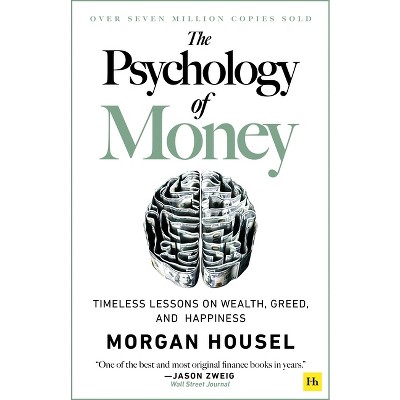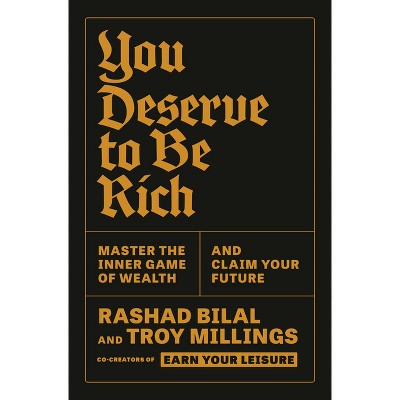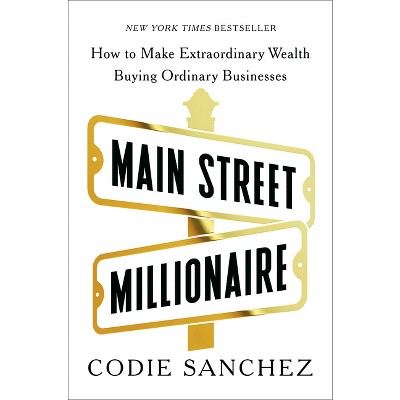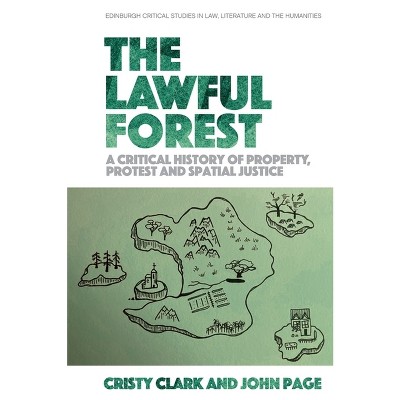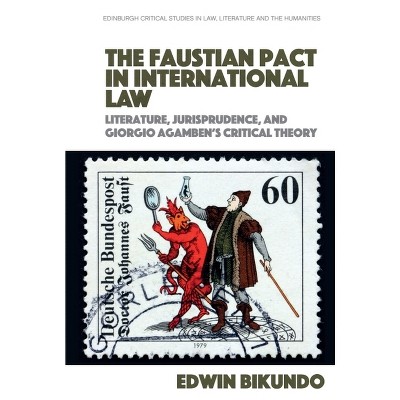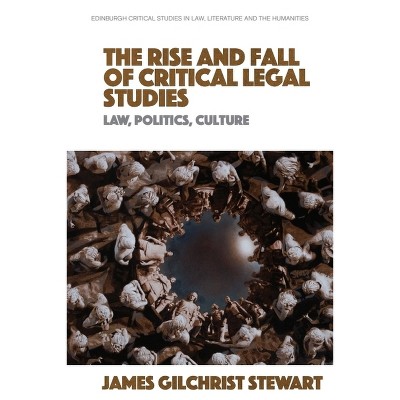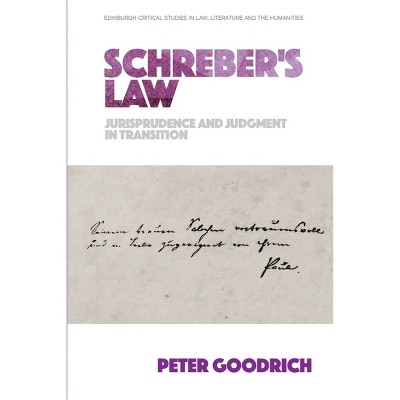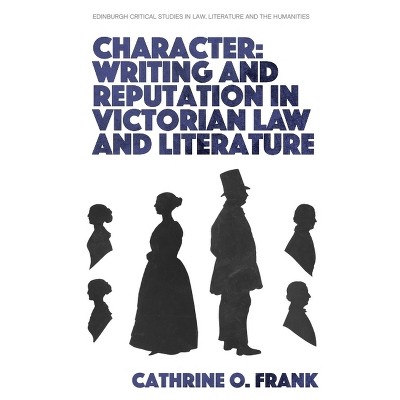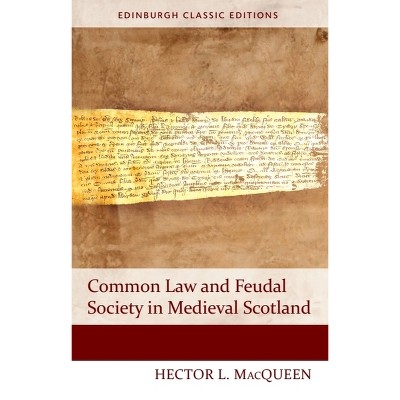Criminality and the Common Law Imagination in the 18th and 19th Centuries - (Edinburgh Critical Studies in Law, Literature and the Humanities)

About this item
Highlights
- By accessing penal history through the mediator of individual memory authors can be seen to depict the cumulative dialogue between the English common law and its cultural representations across historical time.
- About the Author: Erin Sheley is Assistant Professor in the Faculty of Law at the University of Calgary.
- 264 Pages
- Freedom + Security / Law Enforcement, Legal History
- Series Name: Edinburgh Critical Studies in Law, Literature and the Humanities
Description
About the Book
Through interdisciplinary readings of a range of literary and legal texts across a 200-year period, this book uncovers how the cultural narrative affected the development of the law itself in the 18th and 19th centuries in three case studies: adultery, child criminality and rape testimony.Book Synopsis
By accessing penal history through the mediator of individual memory authors can be seen to depict the cumulative dialogue between the English common law and its cultural representations across historical time. Offering legal readings of works by authors including Thomas Hardy, Charles Brockden Brown, Charles Dickens, Samuel Richardson, George MacDonald, Charles Kingsley, Alfred Tennyson, Charlotte Brontë, Robert Browning, Henry Fielding and Sir Walter Scott; this book explores this literary phenomenon and its legal significance during the eighteenth and nineteenth centuries. In doing so it argues that the importance of precedent in Anglo-American common law creates a unique discourse of historical legitimacy that shapes both the cultural and official conceptions of criminality itself during this period. Within a Foucauldian framework, the book illustrates how the cultural memory of crime and punishment contribute to the development of formal and informal penal institutions.
Key Features:*Generates a new framework for analysing the relationship between individual and cultural narratives, literary texts, and the cumulative "truth" created by the common law
*Provides three case studies of adultery, child criminality, and rape testimony that demonstrate the impact of cultural narrative on legal development in the eighteenth and nineteenth centuries.
*Legal readings of works by authors including Thomas Hardy, Charles Brockden Brown, Charles Dickens, Samuel Richardson, George MacDonald, Charles Kingsley, Alfred Tennyson, Charlotte Brontë, Robert Browning, Henry Fielding, Sir Walter Scott
*Transformative readings of widely read works including Charles Brockden Brown's Wieland and Ormond, Thomas Hardy's Tess of the d'Urbervilles, Charles Kingsley's The Water-Babies, Alfred Tennyson's Idylls of the King, Charlotte Brontë's Jayne Eyre, Henry Fielding's The Modern Husband and Sir Walter Scott 's Heart of Midlothian
From the Back Cover
A new framework for examining the relationship between individual and cultural trauma, literary texts and the cumulative 'truth' produced by the common law Through interdisciplinary readings of a range of literary and legal texts across a 200-year period, this book uncovers the connections between the individual and collective memories of law and crime that affected the development of the law itself. It draws on 3 case studies - adultery, child criminality and rape testimony - that demonstrate the impact of cultural narrative on legal development in the 18th and 19th centuries. Erin Sheley shows how the symbolic relationship between adultery and threatened English sovereignty created a quasi-criminal legal discourse surrounding the private wrong of adultery; how the literary 'construction' of childhood by 19th-century fairy-tale writers affected the development of the juvenile justice system; and how evolving rules about rape victim 'character evidence' functioned as epistemological components of volatile national identity. Transformative readings of widely read works include: Charles Brockden Brown's 'Wieland and Ormond' Thomas Hardy's 'Tess of the d'Urbervilles' Charles Kingsley's 'The Water-Babies' George MacDonald's 'The Lost Princess' Alfred, Lord Tennyson's 'Idylls of the King' Charlotte Brontë's 'Jane Eyre' Henry Fielding's 'The Modern Husband' Sir Walter Scott's 'Heart of Midlothian' Samuel Richardson's 'Clarissa' Erin Sheley is Associate Professor at the University of Oklahoma College of LawAbout the Author
Erin Sheley is Assistant Professor in the Faculty of Law at the University of Calgary. Erin's research considers how the law should account for subjective narratives in evaluating criminal and tort harm. She has contributed articles to various journals including the Journal of Criminal Law and Criminology, the Harvard Journal of Law and Public Policy, Law, Culture, and the Humanities and Law and Literature.Shipping details
Return details
Trending Business & Law Books

